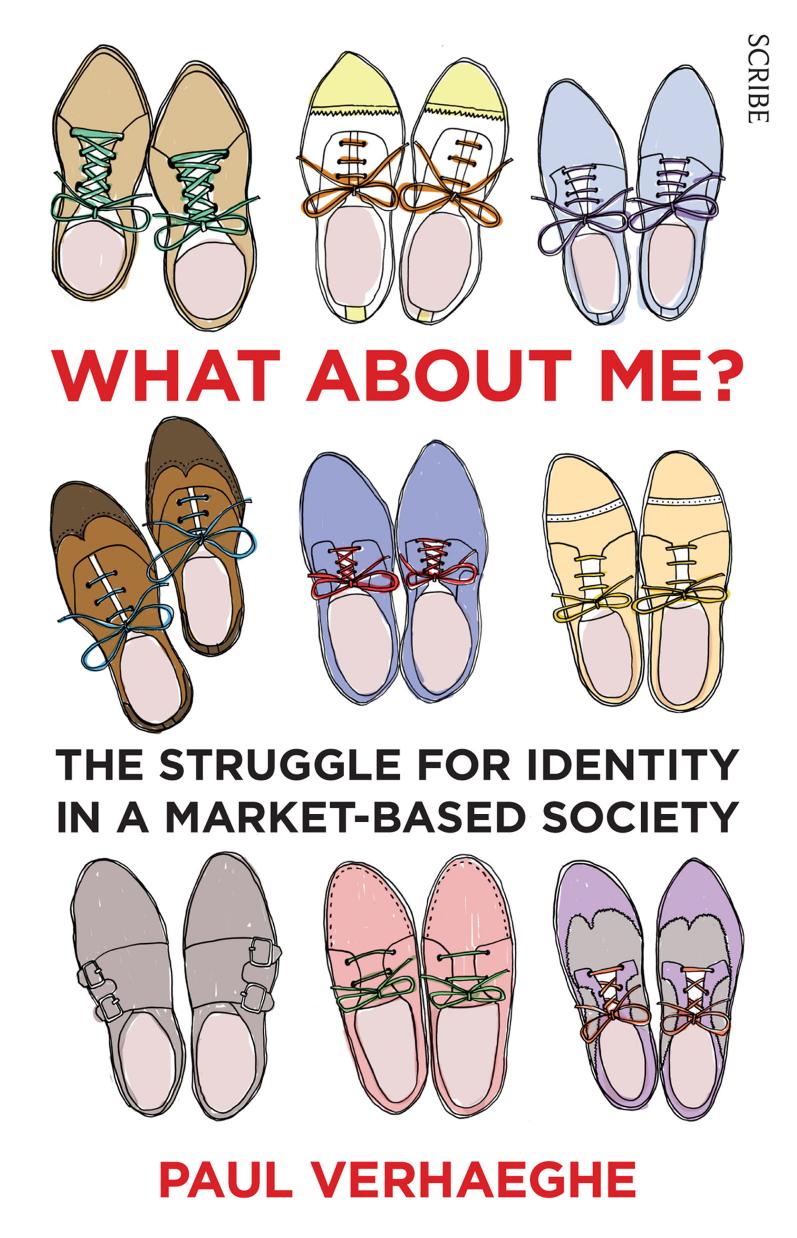What About Me?: The Struggle for Identity in a Market-Based Society by Paul Verhaeghe

Author:Paul Verhaeghe
Language: eng
Format: mobi, pdf
Tags: SOC022000, PSY031000
Publisher: Scribe Publications Pty Ltd.
Published: 2014-12-31T13:00:00+00:00
Impact on quality
The expectation is that a meritocracy will produce better results than a business run on non-meritocratic lines. If the best people who make the greatest effort are given the highest positions, then surely the quality of the organisation’s products or services will be optimal? There is nothing wrong with this reasoning in theory, but in practice two factors get in the way. First, it isn’t easy to express quality in figures, the consequence being that the reasoning is often turned on its head: only that which can be expressed in figures classifies as quality. Second, the sole aim of a neo-liberal market economy is to make a profit; quality is not an aim in itself. Despite all the triumphant brandishing of figures, it’s clear to most of us that under the influence of market forces, the old public utilities, from the railways to the electricity companies, have become more expensive and less efficient, and that the quality of many consumer durables has declined, so that they have to be replaced more often.
In the case of tangible products (such as cars), it is possible to measure quality in a uniform way. When aesthetics and taste are involved, however (as with, for example, foodstuffs), it becomes less straightforward. And when it comes to knowledge and the provision of services (in, for example, research, education, and healthcare), it becomes very hard indeed. Here the meritocratic measuring system provides its own solution: quality is determined by measurability; anything that can’t be measured doesn’t count. In other words, measuring is not just passive registration; it has an active impact. Any alteration to the yardstick signals an altered perception of quality, affecting the behaviour of those involved. A form of tunnel vision is created: this, and only this, is quality. Anything that falls outside the measuring system is deemed unproductive, and so no time should be wasted on it. If viewing figures determine the ‘quality’ of a television programme, you create hamburger TV. The relative nature of this kind of quality is most apparent when the measuring method and criteria change — which happens faster and faster everywhere. In the twinkling of an eye, all that has gone before is forgotten, and the new yardstick provides the latest definition of quality — once again changing the behaviour of all those concerned.
On top of this, a meritocratic system of quality measurement cannot take account of local and contextual factors. The yardstick must apply equally to all, and measurement must be ‘standardised’ — otherwise the comparison will not be deemed ‘objective’. Thus the proponents of this system, with a view to silencing any critical opposition, base their practices on the very narrow vision of science discussed in chapter three.
It is striking how often measuring systems of this kind are imposed by an anonymous head office and conceived by external taskforces and consultants who have little affinity with the work that they are told to measure. They receive a fat fee into the bargain, which only increases the frustration on the work floor.
Download
What About Me?: The Struggle for Identity in a Market-Based Society by Paul Verhaeghe.pdf
This site does not store any files on its server. We only index and link to content provided by other sites. Please contact the content providers to delete copyright contents if any and email us, we'll remove relevant links or contents immediately.
Rewire Your Anxious Brain by Catherine M. Pittman(18643)
Talking to Strangers by Malcolm Gladwell(13349)
The Art of Thinking Clearly by Rolf Dobelli(10455)
Mindhunter: Inside the FBI's Elite Serial Crime Unit by John E. Douglas & Mark Olshaker(9324)
Becoming Supernatural by Dr. Joe Dispenza(8201)
Change Your Questions, Change Your Life by Marilee Adams(7760)
Nudge - Improving Decisions about Health, Wealth, and Happiness by Thaler Sunstein(7693)
The Road Less Traveled by M. Scott Peck(7594)
The Lost Art of Listening by Michael P. Nichols(7494)
Mastermind: How to Think Like Sherlock Holmes by Maria Konnikova(7323)
Enlightenment Now: The Case for Reason, Science, Humanism, and Progress by Steven Pinker(7306)
Win Bigly by Scott Adams(7184)
The Way of Zen by Alan W. Watts(6601)
Daring Greatly by Brene Brown(6504)
Big Magic: Creative Living Beyond Fear by Elizabeth Gilbert(5756)
Grit by Angela Duckworth(5604)
Ego Is the Enemy by Ryan Holiday(5414)
Men In Love by Nancy Friday(5234)
The Laws of Human Nature by Robert Greene(5173)
